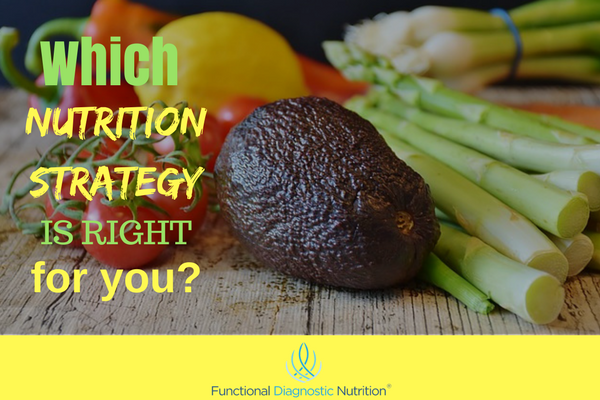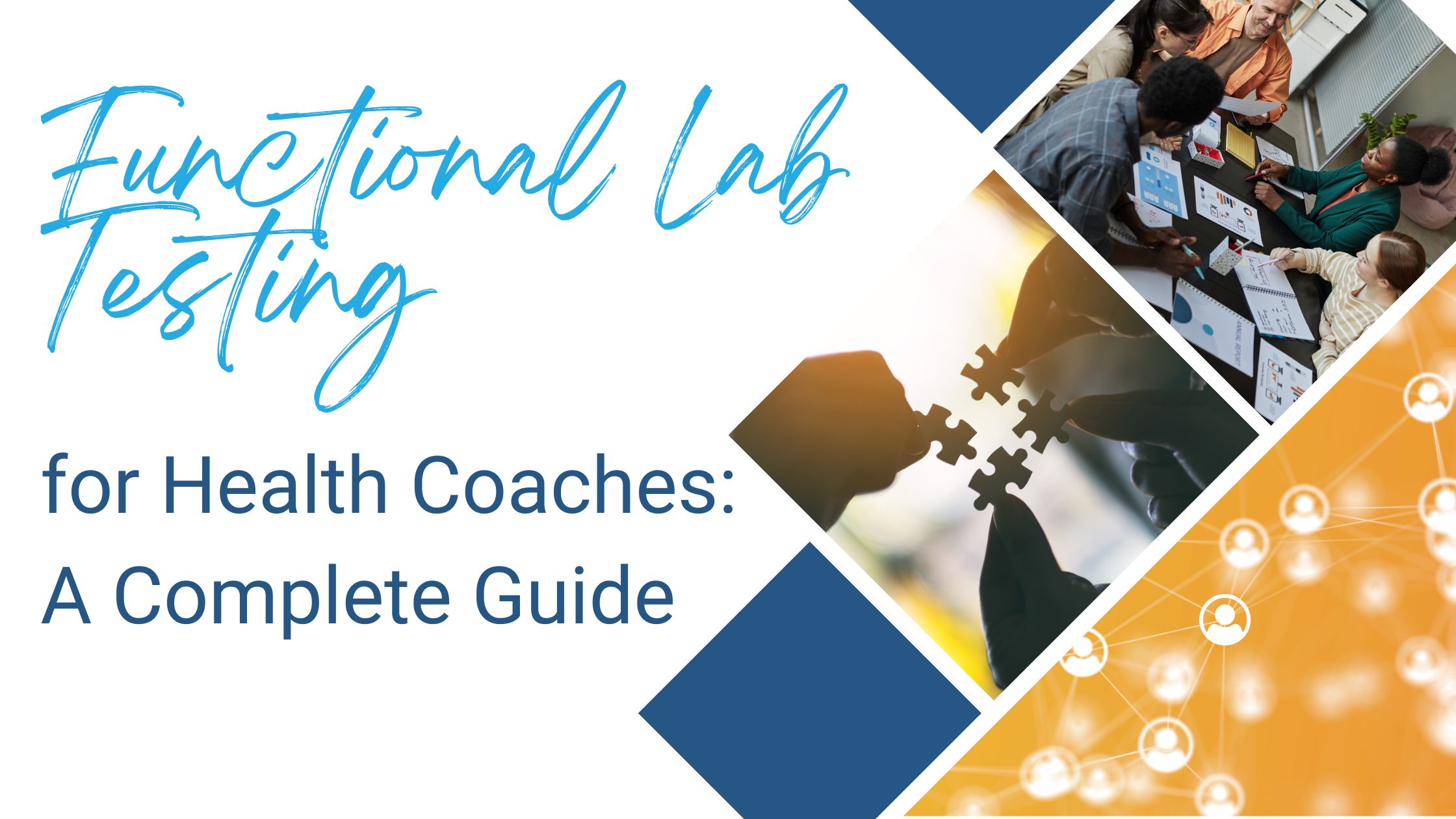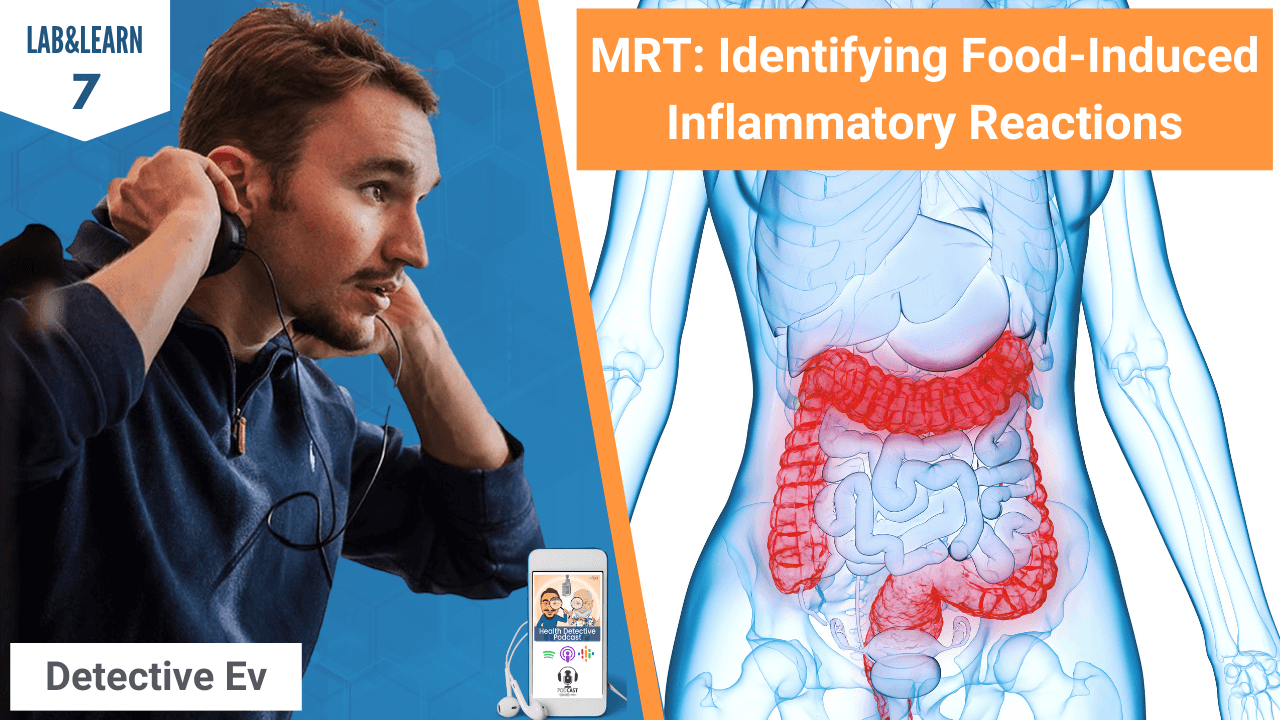Our guest post today on finding the right nutrition strategy for you comes from Brendan Vermeire, FDN-P, functional health coach. Be sure to read more about Brendan below!
What you need to know:
-Awareness is the first step towards change of any kind.
-Anyone can stick to any plan temporarily out of willpower. A temporary plan leads to temporary results.
-You can’t build a sturdy house on a cracked foundation and expect long term success.
-It doesn’t matter how detailed or advanced the plan is if it can’t be followed consistently or sustained long term.
-To begin you have to determine what your starting point is, where you are trying to get, how long you want to be there, and therefore, what the best approach and “pace” is to get there in order to stay as long as you desire.
-The moment you stop listening to your body is the moment you have sabotaged yourself.
-Your body doesn’t do anything by accident. Appetite and cravings are a phenomena controlled by an array of hormones.
-The best plan for you is one that fuels you well and makes you feel good while making progress….no matter what the “science says”. This will change over time, but once you find a framework for success, you can make small adjustments to bust through plateaus.
Information overload
Due to an overwhelming amount of information constantly available to us via the small computers in our pockets, it has become nearly impossible to determine what information could help us reach our health and fitness goals. Keto. Carb cycling. Flexible dieting (IIFYM). Nutrient timing. Paleo. Calorie counting. Intermittent fasting. Eat for your blood type. Eat for your body type. Where is a health enthusiast to begin?
In order to find nutrition plan that is right for you, first you must be able to understand what the strategy for each plan is and how that could benefit you. When it comes to modifying nutrition there are many strategies that can help you improve. But it’s a matter of finding what is going to help you the most without hurting you.
First and foremost, the one thing that every nutrition plan has in common is that it builds awareness towards our eating habits. As simple as that might seem, in reality it’s the first and biggest step of the entire process. Think of how many people are completely unaware of their food choices, food portions and lifestyle in general.
The need for awareness
Without awareness nothing else can take place. This is part of why it makes finding the right nutrition plan so difficult in that we are bombarded with all of these success stories from other dieters who have had success with whatever strategy, no matter how simple or advanced. Many people will make either some, or possibly outstanding progress just from becoming more aware of their choices and starting to make “the better choices” through mindful eating strategies.
But you might have already known all that. In fact, if you’re reading this, chances are you are a bit more advanced than the average gym goer or nutrition ponderer’. You might even be a high-speed death machine stuck in a lackluster body seeking out the answers to blossom like a caterpillar in a cocoon. Or not, in which case search no further and utilize this information to jump to the top of the food chain you alpha mammal you. So before diving into any details we must first look at the whole picture and remember what the point of any nutrition plan or diet is in the first place.
Generally, the goal of a nutrition plan, or diet if that’s what you like to call it, is to help you reshape your body and/or health by adjusting your food intake and lifestyle.
Now somewhere along the line we have been convinced that it is as simple as using elementary level math skills in order to count our way to health and fitness. Counting our calories. Pounds. Macros. Steps. Metabolic rate. Minutes working out. Body fat percentage. Heart rate zones. Time eating. Time fasting. Etcetera. As if it were so simple. Sometimes it can be, or at least for a condensed period of time as you get started.
I certainly stand by the statement that “if you don’t measure it you can’t fix it”. However, we must remember that numbers are really just a tool to build awareness. Being a thorough calorie counter doesn’t make you a metabolic wizard. But being able to wisely keep track of calories gives you a frame of reference to the much bigger picture.
If you go from being completely unaware of your lifestyle choices to all of a sudden you are making more health conscious choices and monitoring portion sizes, that’s all you might need to see some pretty big changes initially. So you always have to remember that basic strategies will yield basic results. But again that’s not what you’re here for is it?
The missing piece
So what’s the missing piece here people? We’ve determined what the point of a nutrition plan is but we haven’t figured out how to effectively conduct one. Getting back to the point of a nutrition plan being to allow us to transform our health and bodies by changing our lifestyle and nutrition choices, there is a huge missing piece to this statement! I would imagine most people might add something like “while not feeling like crap all the time!” Oh! Right! That whole “not being miserable every moment while you work towards your goals” thing.
Anybody can stick to some type of plan for a short period of time. Maybe they will get some results, or maybe they will get an amazing result but obviously if the plan their following is not sustainable then they fall right back into their old habits and regress. So the true secret, if you call it a secret, is in being able to find a sustainable way of eating that fuels your body the way it needs to be fueled in order to sustain the results you want, or help keep you moving towards the results you want over time.
So how do we do this? Well think about it. That means you’re going to have to eat an appropriate amount of nutrient to fuel your body. To keep your appetite and cravings in control all day, every day. To keep your energy up as much as possible. And fuel your workout performance and muscle recovery. Prevent any other issues such as sickness, gastrointestinal distress, immune responses, and more.
So what does all of this tell you? That you have to be in tune with your body!! That’s the big missing link that no one seems to talk about anymore and yet is the most important factor in all of this! Imagine that? The true secret to successfully changing your health and body is in listening to your body and giving it what it needs. Now remember that’s not always the same as what it wants. Your body might tell you it wants a candy bar when in reality maybe what it needs is some magnesium or a boost in dopamine but it results as a craving for chocolate. Sneaky body.
Having experimented with many, many nutrition strategies myself, I can tell you with certainty that the times that I get the best results are the times when I’m not intentionally trying to follow a plan and am merely living my typical “clean eating” lifestyle and nourish my body as I feel fit. I’m not by any means saying there isn’t any merit to any of these different strategies, but merely pointing out that if you’re trying to “force a square peg into a circle hole” you are setting yourself up for failure.
As I alluded to above, appetite and cravings are perhaps the top two factors that determine your dietary success. Most disciplined individuals can put up with a bad workout here and there or suck it up when feeling a tad hungry, but make no mistake, persistent hunger and surges of intense cravings will eventually derail the most hardcore of individuals. Anyone that says otherwise is lying and hides in the closet when having their binge moments.
There are many different hormones that affect both appetite and cravings, but for the sake of this article we will simply cover the top players:
- Ghrelin- released by cells in the stomach, pancreas, kidneys, and brain in response to low food intake and fasting. Increases appetite signals in the brain to encourage feeding. Can be thought of as an “hour to hour” signal.
- Leptin- released by fat cells in response to fat storage after feeding. More of a “fuel gauge” response to overall energy balance in the body. Influences day to day and week to week appetite in response to body fat changes.
- Cholecystokinin (CCK)- released from cells in the duodenum in response to ingested protein and fat to stimulate the pancreas and gall bladder to aid in digestion. Decreases hunger in the brain.
- Gastric Inhibitory Polypeptide (GIP)- released from cells in the small intestine. Stimulates the release of insulin from the pancreas and decreases hunger in the brain. Triggered by sugar and starch primarily and has more fat storing mechanisms.
- Glucagon like Peptide (GLP)- like GIP, GLP stimulates the release of insulin and lowers appetite. More responsive to protein ingestion.
- Peptide YY- released by the intestines and colon in proportion to the amount of food ingested. It decreases appetite in the hours after eating.
*Fun fact: Part of why gastric bypass surgery can be so successful for weight loss is in the fact that typically part of the intestine is removed which can reduce or eliminate the presence of some appetite influencing hormones such as GIP.
That’s quite the list! And the truth is that those are really just the basics when it comes to the hormones of the digestive tract or those that influence appetite signaling! This is part of why we each respond differently to different food intakes. Some individuals might do best from a higher fat and protein meal through sensitivity to CCK, while others may feel hungry constantly due to leptin resistance.
The point in sharing this list isn’t to make you think “EUREKA! All I’ve got to do is make sure I’m stimulating plenty of GLP every time I eat and I’ll be fine and dandy”, but rather to show you a glimpse of the synchronized complexity that is our metabolism. Try to outsmart it and you will lose……every time.
Although our body and its physiology adjusts and adapts over time, if consistent enough, you will find a general recipe for success. For some that might be lots of carbs all the time. For others they may need more protein to keep their appetite at bay. This is where, assuming we’re speaking in the context of nothing but real food from the earth, we would say you must “find what works for you”!
Brendan Vermeire (FDN-P) has always been an extremely motivated individual and grew up active in martial arts and wrestling. At a young age he realized the importance of fitness and nutrition and felt empowered by the idea that he had control over his own health and physique. After finishing his high school wrestling days he enlisted in the United States Navy for the prestigious SEAL program. Unfortunately my SEAL aspirations were cut short. He then transitioned into competitive bodybuilding, personal training and nutrition coaching at the age of 19. He was fortunate to work with a variety of experienced professionals and gained exposure to many modalities and areas of science. That exposure set him on a path to learning as much as he can about how to optimize human health, happiness, and performance.
You can find out more about Brendan at his website Vermeire Consulting.







